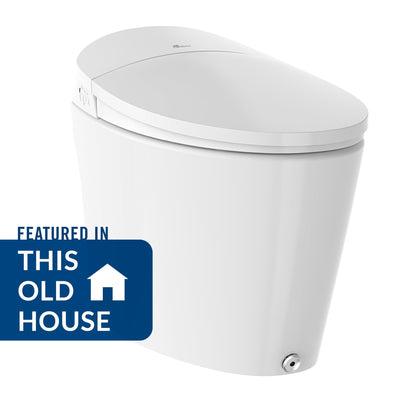Life After Toilet Paper
If you were a reality TV fan a few years back, you might have seen a series on National Geographic that showcased various preparation enthusiasts and their strategies for surviving society’s impending collapse. One family, preparing to evacuate their home in the event of a tsunami, devoted a bewildering amount of valuable cargo space to a massive paper towel supply. Who could have guessed that this seemingly unreasonable reaction by a family on the “fringe” would prove prophetic?
Covid-19 has shined a light on many unexamined aspects of our current society. One positive take-away is a revitalized appreciation for healthcare workers, delivery drivers, teachers, administrators, and grocery store associates; all the essential workers who deserve immeasurable thanks for having made the crisis more bearable through their selfless services.
The crisis has also presented us with challenges to address. One such area is our apparent confusion between conveniences and necessities – embodied in the Great Toilet Paper Shortage of 2020. Theories abound… and abound as to what caused this phenomenon, but regardless of the reason we can conclude that, somehow, one-use paper products seem rank right up there with food, shelter, and clothing in the mind of a concerned, and otherwise rational consumer.
Change is imminent and it’s a fair guess to say that every facet that was affected by the crisis will be re-examined from Supply Chains to Education policies. In the area of consumer goods, perhaps we’re on the verge of a re-use renaissance.

Recyclable, Reusable, Renewable
Eco-conscious consumers have been wise to the benefits of no-waste living for a long time. Recent years have shown a more mainstream bent toward eco-friendly solutions. Perhaps the devastation of the Covid-19 pandemic will pave the way to a cleaner future, a phoenix from the ashes, now that we are forced to acknowledge our surprising dependency on highly consumable household products like toilet paper.
Renewability & Reusability on a grand scale certainly is about helping the environment and it may now hold the key to keeping a cool head in uncertain times. If you’re considering how you can wield sustainable practices to your advantage (and that of our posterity) we’re happy to share three ways to reduce your dependency on consumable goods:
1: Switch to reusable paper-replacement products
This is a great way to save money and reduce your carbon footprint. While the jury is out on reusable toilet paper, it’s relatively painless to switch to reusable paper towels, cloth nappies, and washable cleaning cloths & hand towels.
2: Use Toilet Paper alternatives
Bidets are time-tested personal cleaning solutions that save money, reduce waste, and clean better than plain toilet paper; it’s also a great tool for potty training. Soap & washcloth will do the trick too. Just be sure to keep a specific receptacle on hand for collecting used materials.
Sanitary side note: a hands-free faucet reduces germ transfer in your bathroom & kitchen.
3: Learn to Grow Food
Growing your own food is an eco-friendly way to secure the most necessary of necessities, and cut down waste in packaging and transport pollution. Many home and hobby gardeners recommend heirloom seeds for their sustainability & variety. Whether you have just enough space for urban gardening or acres of available space for farming, a homegrown food supply is a smart move and a healthy hobby.
In addition to lifestyle changes, we’ve seen a marked revival of practices that, before the Covid crisis, were considered antiquated. Canning, sewing and raising poultry may be skills that we’ll be better off for having regained in preparation for future uncertainty.
Most important of all, let’s try to be ready with an ample supply of human decency…but that’s a topic for another day.
We want to hear from you. Leave us your thoughts and comments:
- Have you implanted one or more of these suggested changes?
- Do you have any tips for consumers interested in becoming less dependent on consumable goods?
- What other ideas & lifestyle changes could contribute to a reusable renaissance?




